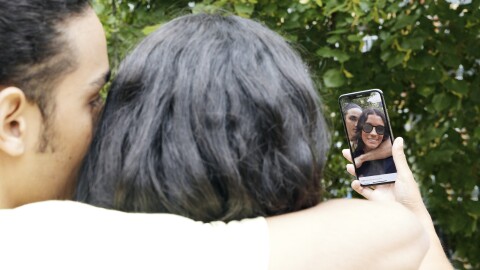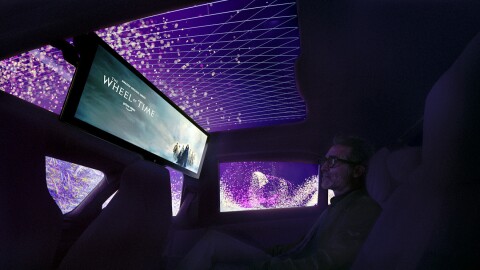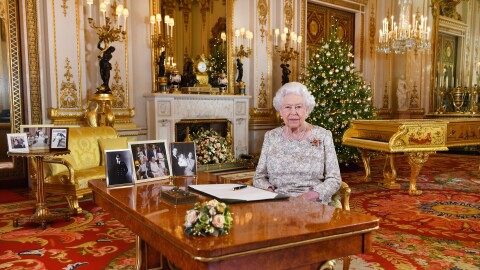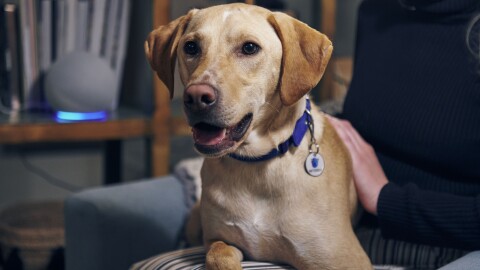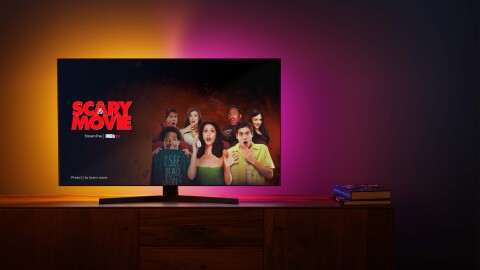“How can we use voice technologies and artificial intelligence to empower the elderly and those who may be physically challenged?” This is the question George Vaughan, director of tech consultancy firm The Digital Line, has set out to answer in collaboration with Amazon and Hampton Care Home. “People often think of these technologies as products designed for millennials and young families,” George says. “But we believe they can have an enormously positive impact on the lives of those who are older or have a disability, too.”
To verify this assumption, The Digital Line has introduced Amazon Echo devices in the nursing home. The devices allow residents who have chosen to participate in the programme to autonomously perform tasks via Alexa which would normally require the assistance of a carer. ‘Project Alexa’ and the collaboration with Amazon, now in their second year, are part of a wider initiative led by The Digital Line and aimed at creating spaces and opportunities for engagement and stimulation for the elderly thanks to digital technologies. “It’s still early days, but feedback from the residents and their families has been overwhelmingly positive,” George explains. “Initially, there was some scepticism, but once the residents saw how simple the system was, they became strong advocates for the programme.”
An empowering voice
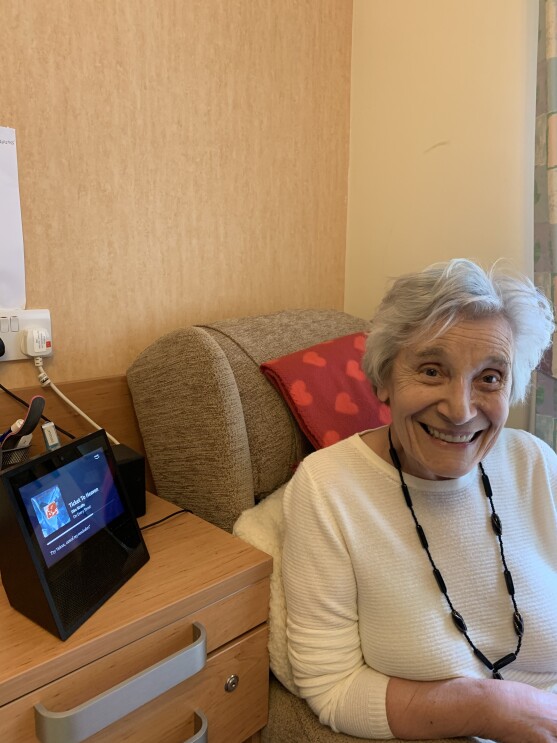
Thanks to Alexa, residents can set reminders to stay hydrated as well as join daily activities in the group area. They can control lights and the temperature in their rooms, listen to the music they love, watch TV, listen to an audio book or call their families, all without needing to call a carer. This newfound autonomy is particularly important for residents with limited mobility, like Edna. “She is 92, and cannot get out of bed,” George explains. “Without Alexa, each one of those actions would need to be performed for her by a carer. But the carer might be busy dealing with something else, and Edna would need to wait. In this way, she can take control of many aspects of her life just by using her voice.” This also means freeing care workers from some of their minor routine tasks, allowing them to focus on more serious issues.
A comforting presence
Ruth, 89, is a big fan of Alexa: her Echo Show enables her to initiate video calls with her children and grandchildren. “I love her,” she says with a smile. “For residents, Alexa is a comforting presence,” says George. “They can ask her questions, and she will always answer, even in the middle of the night.” The experiment, so far, has been very successful: “Residents keep asking for new functionalities, ‘Can Alexa do this? Can Alexa do that?’, and we do our best to keep up with the demands and and look for additional Alexa skills that can satisfy their requests. Feedback from our users plays an essential role in the evolution of the project.”
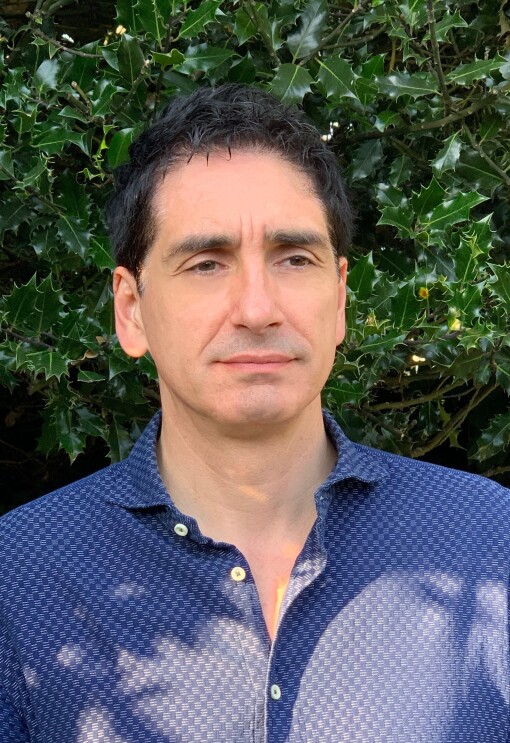
For George, this is just the beginning. Besides the Alexa project and the collaboration with Amazon, the future looks busy for The Digital Line: “Our next challenge will be to show how devices can help combat memory loss and loneliness. We are thinking of developing something like an audio social network, so people who live alone can speak to one another and feel part of a community.” The idea of creating a physical space to facilitate such experiences has led to development of the Digital Hub project, the next step in The Digital Line’s plan. “These hubs will be dedicated areas within care homes, where we will be able to deliver a special set of digital services to residents. The multimedia experiences will complement the entertainment activities traditionally offered by the homes. We have just signed a partnership with the Royal Garden Hotel in Sussex and we will follow this up with a second home in Reigate,” he explains. “The possibilities are endless, and we have just started exploring them. We encourage and expect residents to give us many more ideas over the coming weeks, after the launch.”





